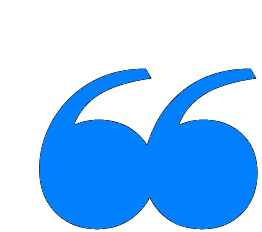Telephone Conversation
-by Wole Soyinka
' Telephone Conversation' is a poetic satire against the widespread racism still prevalent in the modern western society. As the title suggests, the poem depicts a telephone conversation between a west-African man and a British land-lady who shockingly changes her attitude towards the man soon after he reveals his racial identity.
 The motif of a microcosmic telephone conversation is employed by the poet to apply to a much broader macrocosmic level where racial bigotry is ridiculed in a contest of human intelligence, also portraying the poet's witticism and his ingenious sense of humor.
The motif of a microcosmic telephone conversation is employed by the poet to apply to a much broader macrocosmic level where racial bigotry is ridiculed in a contest of human intelligence, also portraying the poet's witticism and his ingenious sense of humor.
The poem begins on a peaceful note, befitting the narrator's satisfaction for having found the right house-

' The price seemed reasonable, location
Indifferent. '
The land lady also emphatically mentioned that she lived 'off premises', thereby ensuring that tenant would enjoy absolute privacy and freedom. The conversation however drifted to an unpleasant turn of events, soon after the man surprisingly decided to make a self confession to reveal his nationality-

"Madam, " I warned,
"I hate a wasted journey-I am African."
A sudden unexpected silence followed and the awkward pause in the conversation is strengthened by a caesura, trying to emphasize the impact of the African's race being revealed to the land lady. An uneasy atmosphere is created and the word 'silenced' reiterates the sudden change in the land lady's attitude as well as the man's intuitive sensitivity towards the unfriendliness on the other end of the phone.

'Silence. Silenced transmission of
Pressurized good-breeding.'
It seemed as if the narrator was caught in a foul act and the expression ' Pressurized good-breeding' is only an ironical manifestations of the polite manners the land-lady was supposed to have for the job of renting premises.
After considerable period of silence when the land-lady spoke again, her words seemed to come from between lipstick coated lips that held between them a long gold-rolled cigarette-holder and the impression she gave off was that as if her status in the society was all of a sudden upgraded. Undoubtedly, the poet' s power of imagination enables him to visualize an affluent and sophisticated British land- lady belonging to the so-called progressive and urban world on the other side.
Tension rises with the explicit racial discrimination conveyed through the question- "How Dark?"
Page 1

Next Page »
 Download as PDF
Download as PDF
 The Raven
The Raven  Church Going
Church Going  Frost at Midnight
Frost at Midnight  I sit & look out
I sit & look out  The Lady of Shallot
The Lady of Shallot  Telephone Conversation
Telephone Conversation  Going Places
Going Places  Village Cricket Match
Village Cricket Match  The Night Train at Deoli
The Night Train at Deoli  Growing Up
Growing Up  The Castaway
The Castaway  The motif of a microcosmic telephone conversation is employed by the poet to apply to a much broader macrocosmic level where racial bigotry is ridiculed in a contest of human intelligence, also portraying the poet's witticism and his ingenious sense of humor.
The motif of a microcosmic telephone conversation is employed by the poet to apply to a much broader macrocosmic level where racial bigotry is ridiculed in a contest of human intelligence, also portraying the poet's witticism and his ingenious sense of humor. 

 Download as PDF
Download as PDF